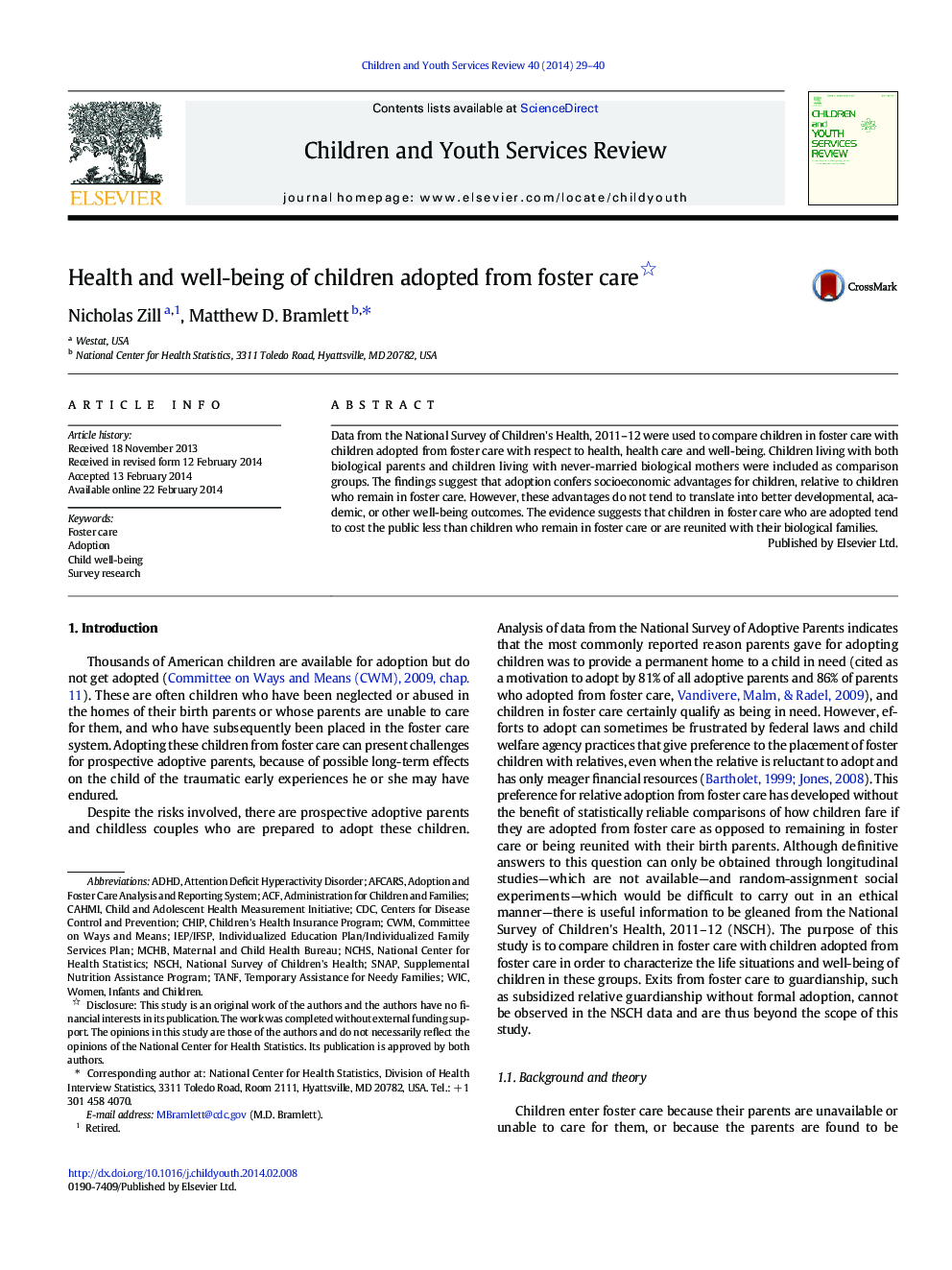| Article ID | Journal | Published Year | Pages | File Type |
|---|---|---|---|---|
| 6834363 | Children and Youth Services Review | 2014 | 12 Pages |
Abstract
Data from the National Survey of Children's Health, 2011-12 were used to compare children in foster care with children adopted from foster care with respect to health, health care and well-being. Children living with both biological parents and children living with never-married biological mothers were included as comparison groups. The findings suggest that adoption confers socioeconomic advantages for children, relative to children who remain in foster care. However, these advantages do not tend to translate into better developmental, academic, or other well-being outcomes. The evidence suggests that children in foster care who are adopted tend to cost the public less than children who remain in foster care or are reunited with their biological families.
Keywords
NSCHMaternal and Child Health BureauMCHBAFCARSTemporary assistance for needy familiesTANFCWMWICNCHSACFCDCattention deficit hyperactivity disorderNational Survey of Children's HealthChildren's Health Insurance ProgramSupplemental Nutrition Assistance ProgramADHDSurvey researchChild well-beingSNAPAdoptionCenters for Disease Control and PreventionNational Center for Health Statisticsfoster careCHiP
Related Topics
Health Sciences
Medicine and Dentistry
Perinatology, Pediatrics and Child Health
Authors
Nicholas Zill, Matthew D. Bramlett,
